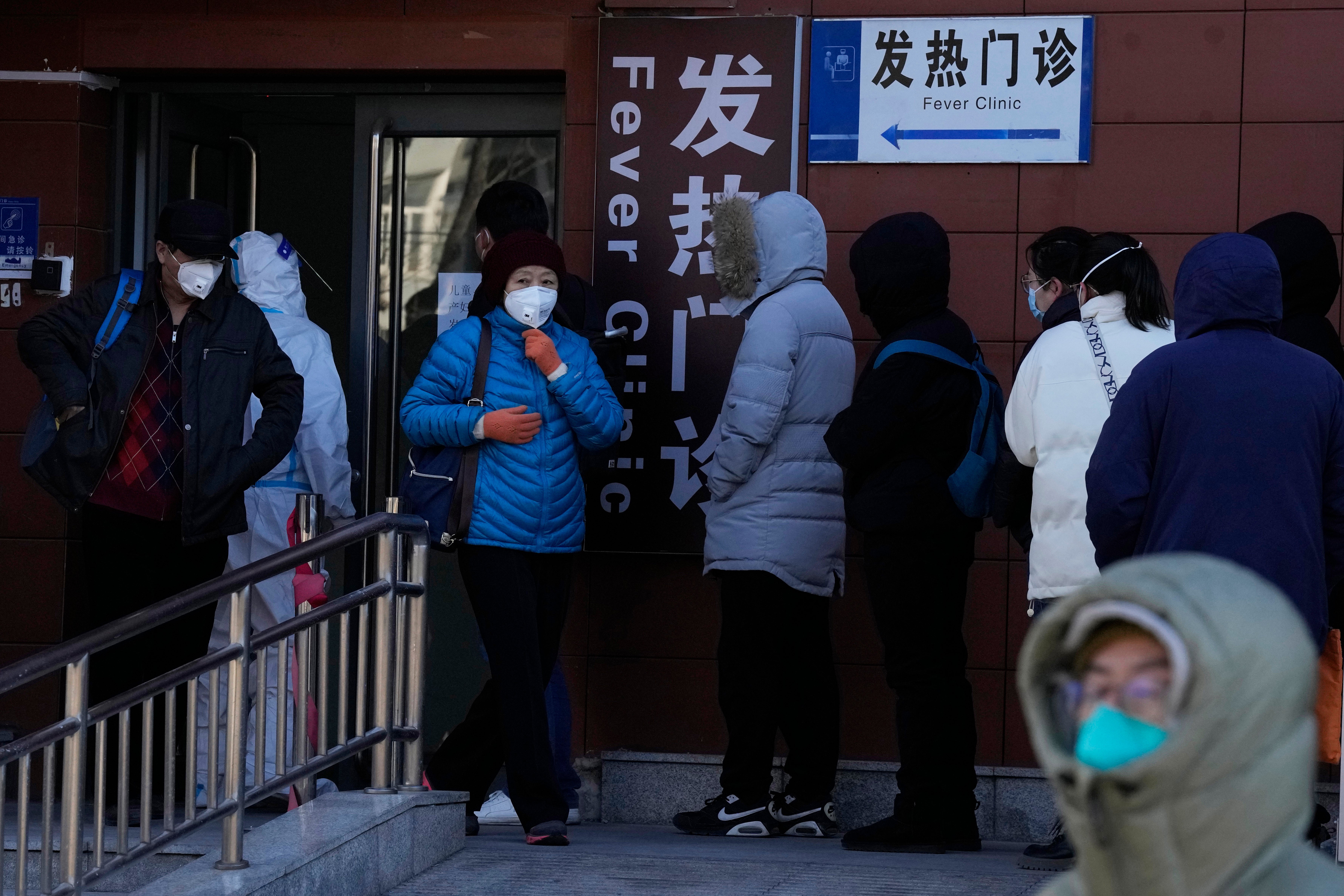China sees huge Covid surge as Beijing scraps app that tracks people’s movements
Hospitals across the country have seen a surge in infections in the community

China saw long queues outside “fever clinics” in capital Beijing on Sunday as hospitals across the country witness an uptick in infections just days after the loosening of a slew of Covid restrictions.
Reuters reported that people queued outside fever clinics at China’s hospitals to check if they had Covid. “I’m really afraid of being infected, because the number of infected people is growing gradually in Beijing,” an 18-year-old student, surnamed Tan, was quoted as saying.
“But I must come out and run some errands today,” he added. “I have been delaying going outside for three weeks due to Covid.”
China Youth Daily quoted unnamed experts calling for residents not to visit hospitals unless necessary.
Global Times quoted another doctor at a hospital in Beijing, who requested anonymity, saying that the “biggest problems they are facing now is the increasing number of patients waiting to be admitted into emergency and fever clinics”.
The unidentified doctor said that “his hospital had separated patients with positive Covid-19 testing results and patients with negative results, to reduce the risk of infection spreading within the hospital”.
In recent weeks, local cases have trended lower after a late November peak of 40,052 cases, showed official figures. Sunday’s tally of 8,626 was down from 10,597 new cases the previous day, reported Reuters.
Authorities, however, have continued bringing in changes. The latest measure announced was the deactivation of the “mobile itinerary card” health-tracking app, used to track the travel histories of a population of 1.4 billion people, on Monday midnight.
Last week, China introduced new rules that stated the scale of lockdowns will be limited to individual apartment floors and buildings and not entire districts and neighbourhoods. The new policy also stressed that basic social and medical services need to be provided. People’s movements, work and production should not be restricted in low-risk areas.
Meanwhile, experts warned that the Omicron variant is spreading rapidly across the country and that the outbreak could peak in a month.
State-backed newspaper Shanghai Securities News quoted Zhang Wenhong, head of a team of experts in the commercial hub, as saying that the current outbreak could peak in a month, though the end of the pandemic might take 3-6 months.
Beijing has also urged local governments to upgrade their medical capacity to protect China’s rural population from Covid.
On Sunday, the Joint Prevention and Control Mechanism of the State Council Said in a statement that “rural areas should... improve the ability of county-level hospitals to treat severe cases, and give full play to the role of health monitoring in township hospitals and village clinics to minimise the severity rate and mortality rate.”
Since last week, China has largely abandoned its draconian pandemic restrictions. Hospitals across the country have seen a surge in infections in the community while preparing for an expected influx of Covid cases to come through the door.
A leading infectious diseases expert in China, Zhong Nanshan was quoted as saying by Xinhua that “it is highly unlikely that people will be restricted from travelling home for Lunar New Year celebrations in 2023, but it is still important to step up preparations.
“I suggest that people who are ready to travel back home should get booster vaccinations so that they won’t develop serious symptoms even if they catch Covid. A booster shot usually takes effect in two weeks. It will help to prevent mass transmission during the Lunar New Year migration when people gather in crowds.”
Other observers and experts, however, warned China may not be prepared to handle the expected surge of cases, after the roll back of most of the restrictions.
“This is a looming crisis – the timing is really bad... China now has to relax much of its measures during the winter (overlapping with flu season), so that was not as planned,” Xi Chen, an associate professor at the Yale School of Public Health in the US, told CNN last week.
On Chinese social media over the weekend, a hashtag that was trending on Weibo featured a state media interview with a Beijing doctor who said “people with asymptomatic infections do not need medication at all.”
Li Tongzeng, chief infectious disease physician at Beijing You An Hospital, told local media in China that “it is enough to rest at home, maintain a good mood and physical condition”.






Join our commenting forum
Join thought-provoking conversations, follow other Independent readers and see their replies
Comments